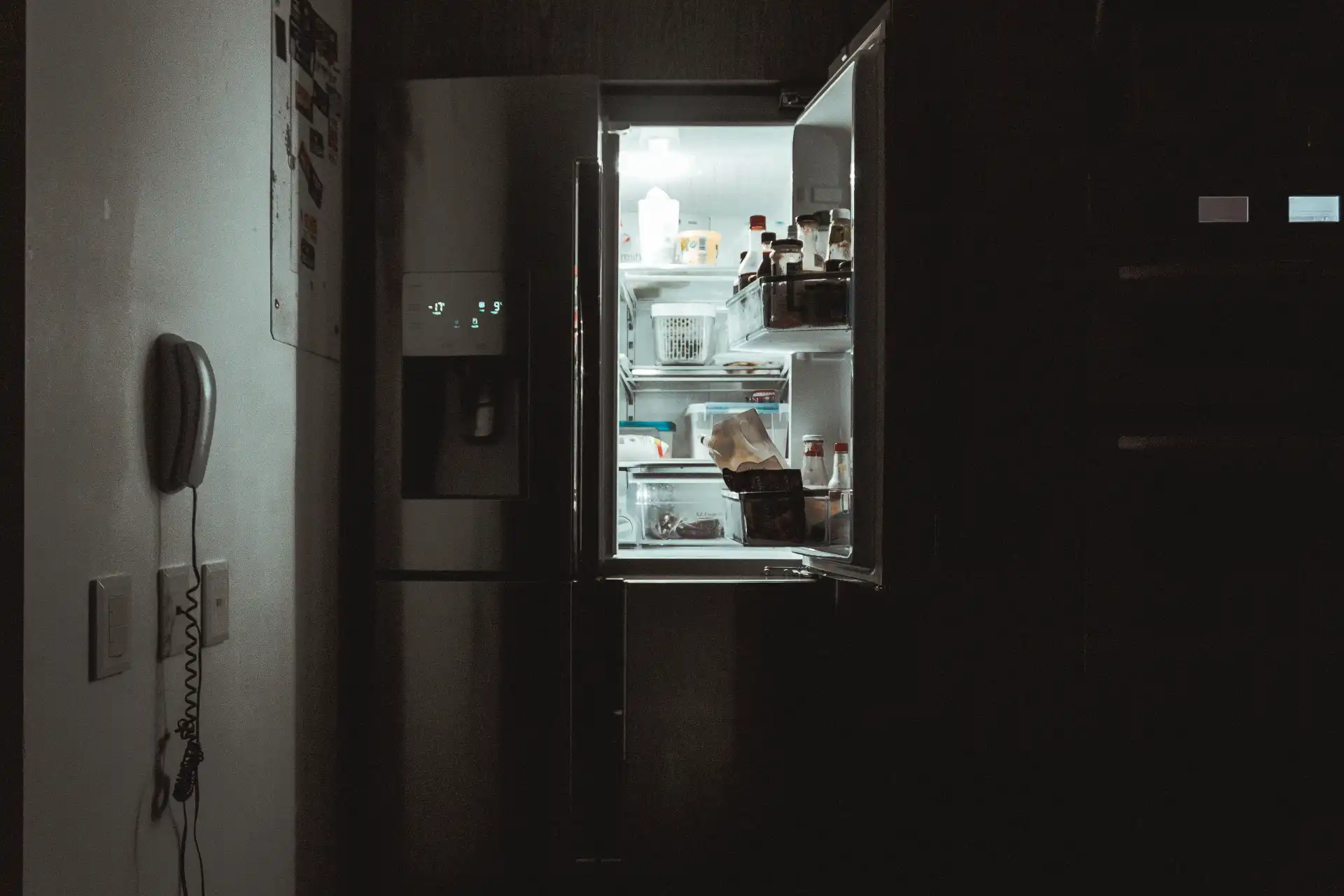Eating at night isn’t uncommon–in fact, many of us often reach for a snack or sweet treat after dinner.
But when a midnight snack turns into a large portion of your daily food intake and starts to impact your sleep, you may be showing signs of an eating disorder commonly known as night eating syndrome.
Defining Night Eating Syndrome
Night eating syndrome (NES) is an eating disorder that is characterized by regularly consuming over a quarter (25%) of your daily calories after dinner.
Individuals with night eating syndrome tend to have a pattern of consuming large meals right before bed. Many may also wake up in the middle of the night and feel the need to eat in order to fall back asleep.
Night eating syndrome is distinct from binge eating disorder as it is closely tied to sleep.
In the U.S. approximately 1.5% of the general population has night eating syndrome. And while it’s possible for anyone to have night eating syndrome, it tends to be more prevalent among women.
Night Eating Syndrome Symptoms
So when does an occasional late-night snack cross over into night eating syndrome?
While signs and symptoms can vary between individuals, those who are diagnosed with night eating syndrome typically exhibit most or all of the following symptoms:
- Consistently eating large amounts of food in the nighttime hours (typically after dinner).
- Poor appetite in the morning and missing breakfast.
- Challenges with falling asleep or staying asleep most nights.
- Feeling a strong connection between eating and falling asleep.
- Increased emotional sensitivity or irritability in the evening hours.
Causes of Night Eating Syndrome
The causes of night eating syndrome aren’t entirely clear, but many studies have connected night eating syndrome to psychological and genetic factors.
Some populations are more likely to experience night eating syndrome. For example, those with a family history of night eating syndrome, as well as those who have been diagnosed with other forms of eating disorders.
Night eating disorder also tends to appear most in individuals in their late teens to late twenties.
Many eating disorders are tied to anxiety and other mental health challenges–night eating syndrome is no exception. NES in particular has been tied to stress and depression. There are also links between night eating disorders and substance use or addiction. Many individuals diagnosed with night eating syndrome struggle with anxiety that they’re unable to sleep without eating.
Some studies have shown evidence that night eating syndrome causes are associated with hormonal issues or disturbances in the sleep-wake cycle.
Health Risks of Night Eating Syndrome
Night eating syndrome impacts both sleep and eating habits, both of which can have significant impacts on not only physical and mental health but also quality of life.
Night eating syndrome has often been linked to weight gain and obesity. Those diagnosed with night eating syndrome are often also at higher risk for high cholesterol, diabetes, and high blood pressure.
It’s important to note that it’s unclear if night eating syndrome is causing these health risks or the other way around.
Treating Night Eating Syndrome
While night eating syndrome can be challenging to live with, it is often treatable through psychological and lifestyle changes. Some common forms of night eating treatment might include:
- Changing meal schedules: Some individuals with night eating syndrome find success by slowly moving meal times earlier in the day to reduce the reliance on evening meal consumption over time.
- Updating sleep routines: The goal is to reduce the reliance on eating as a sleep cue and shift to other sleep signals, such as reading or other relaxing activities.
- Reducing stress: Decreasing stress levels have been shown to alleviate symptoms of night eating syndrome.
- Cognitive behavioral therapy: By changing thoughts and behaviors to reduce negative emotions surrounding sleep and eating.
- Antidepressants: Some studies have shown that antidepressants or selective serotonin reuptake inhibitors (SSRIs) can help improve eating and sleep patterns related to night eating syndrome.
Studies have also shown positive results related to light therapy and muscle relaxation treatment. But as with most eating disorders, every individual responds to treatment differently.
You don’t have to struggle with night eating syndrome alone. If you or someone you know is facing challenges with an eating disorder, our team of healthcare professionals at Eating Disorder Solutions can help. With personalized inpatient and outpatient solutions, we’re committed to helping you navigate your recovery. Contact us for a free consultation today.



